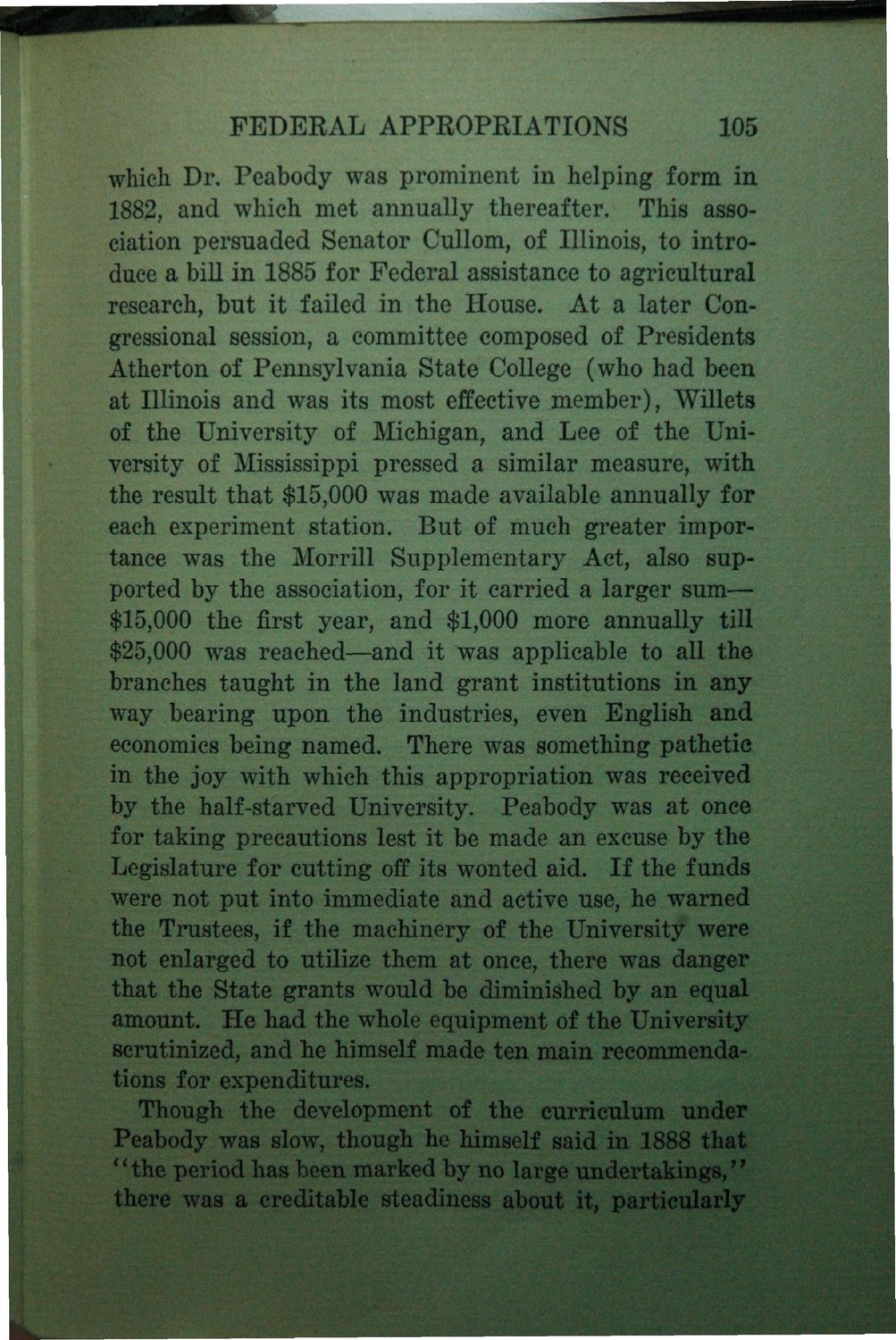| |
| |
Caption: Book - History of the University (Nevins)
This is a reduced-resolution page image for fast online browsing.

EXTRACTED TEXT FROM PAGE:
FEDEEAL APPROPRIATIONS 105 which Dr. Peabody was prominent in helping form in 1882, and which met annually thereafter. This association persuaded Senator Cullom, of Illinois, to introduce a bill in 1885 for Federal assistance to agricultural research, but it failed in the House. At a later Congressional session, a committee composed of Presidents Atherton of Pennsylvania State College (who had been at Illinois and was its most effective member), Willets of the University of Michigan, and Lee of the University of Mississippi pressed a similar measure, with the result that $15,000 was made available annually for each experiment station. But of much greater importance was the Morrill Supplementary Act, also supported by the association, for it carried a larger sum— $15,000 the first year, and $1,000 more annually till $25,000 was reached—and it was applicable to all the branches taught in the land grant institutions in any way bearing upon the industries, even English and economics being named. There was something pathetic in the joy with which this appropriation was received by the half-starved University. Peabody was at once for taking precautions lest it be made an excuse by the Legislature for cutting off its wonted aid. If the funds were not put into immediate and active use, he warned the Trustees, if the machinery of the University were not enlarged to utilize them at once, there was danger that the State grants would be diminished by an equal amount. He had the whole equipment of the University scrutinized, and he himself made ten main recommendations for expenditures. Though the development of the curriculum under Peabody was slow, though he himself said in 1888 that "the period has been marked by no large undertakings," there was a creditable steadiness about it, particularly
| |